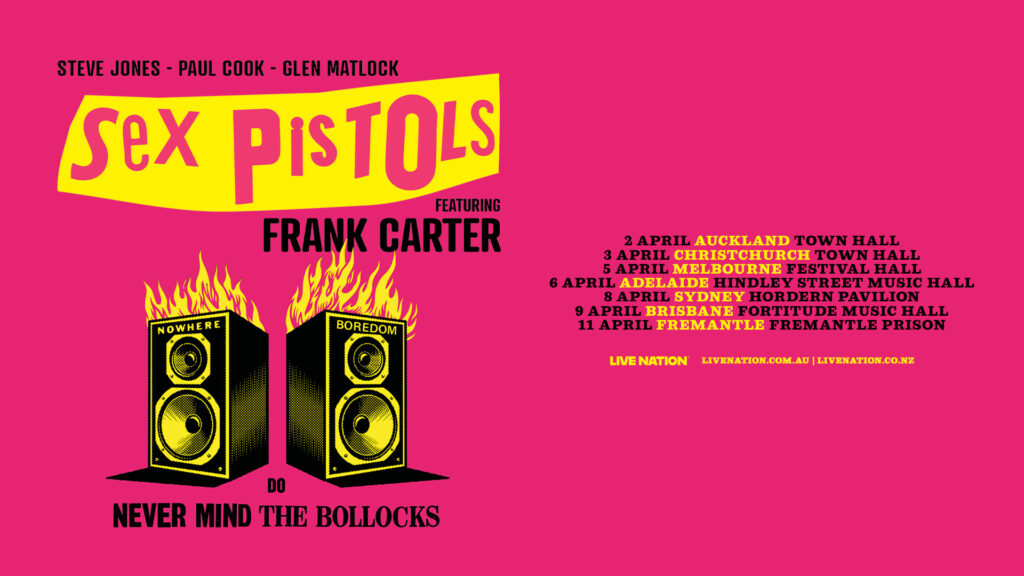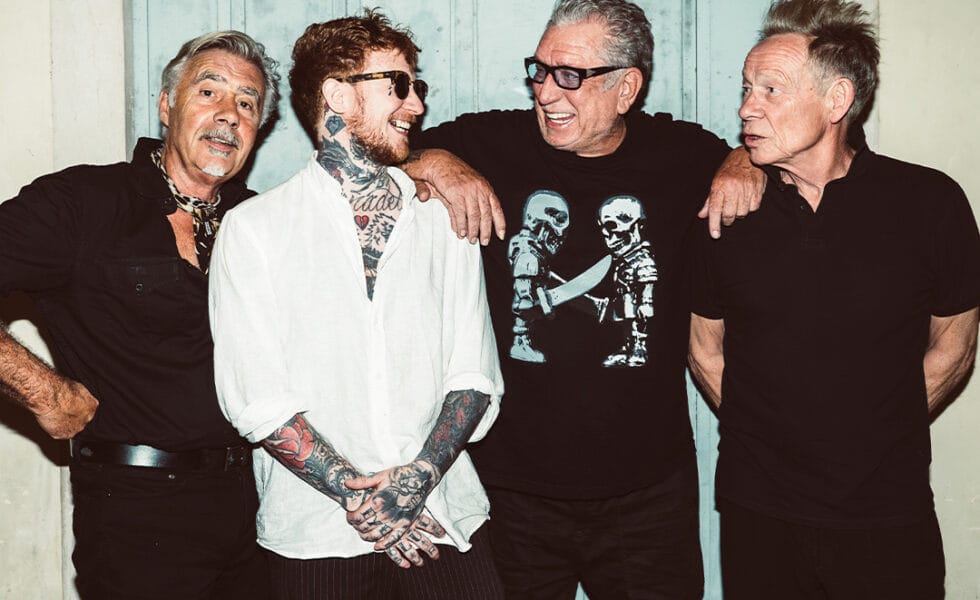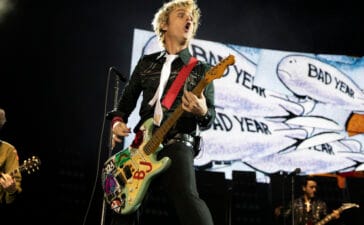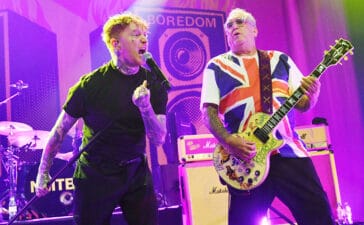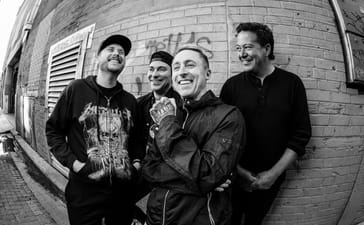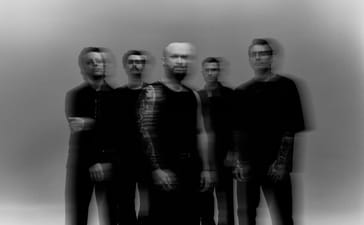The punk icons talk rock and roll deaths, why it’s good to be pissed off and how the Sex Pistols would fare in the era of cancel culture
When my interview with the Sex Pistols was confirmed, I didn’t quite know what to do with myself. Heart racing, palms sweating, I found myself rereading the email repeatedly for about ten minutes, just to ensure I wasn’t caught in some fever dream.
A few days later, when the news finally sunk in, I realised I had two major tasks ahead of me: first, how not to die of nerves, and second, how on earth I was going to interview one of the most iconic bands in music history and still appear original. I mean, at this point the band that has probably been asked every question under the sun.
The night before the interview. 11:38pm. Seeking a brief respite from the punk gig I was attending, I stepped into the toilets. I was immediately enveloped by a cloud of vape smoke and greeted by piss on the floor—it felt very on-brand. Locking myself in a cubicle, I surveyed the graffiti-covered walls. There, among the scrawling’s, were stickers of the Sex Pistols plastered everywhere. It felt like the universe was offering a reassuring nod: “You’ll be fine.” And for once, I was right.
“How are you, Jakey baby?” Sex Pistols guitarist Steve Jones asked, his dry, acerbic humour cutting through any remaining nerves I had.
“I’m good, Mr. Steve Jones. How are you?” I asked.
“I’m good. Well… I’m okay,” he replied, dialling in from his adopted home of Los Angeles. He sounded sprightlier than I expected.
“Have you lived in LA long?”
“Yeah, been here forty years,” he fired back. “A lot longer than you’ve been alive.” Such is the nature of the Sex Pistols. Jones was direct and had no time for any of my journalist nonsense. His no-holds-barred attitude was exactly what I’d anticipated from a man who spent his youth enraging the establishment and rewriting the rules of rock.
Jones, along with bassist Glen Matlock, drummer Paul Cook, and the infamous Johnny Rotten, formed the Sex Pistols in 1975. Later joined by Rotten’s friend Sid Vicious, they ignited the punk rock movement with their chaotic energy, anti-establishment rhetoric, and a raw, snarling sound. Managed by Malcolm McLaren and styled by Vivienne Westwood, the Sex Pistols created an image and a sound that was utterly unique even to this day.
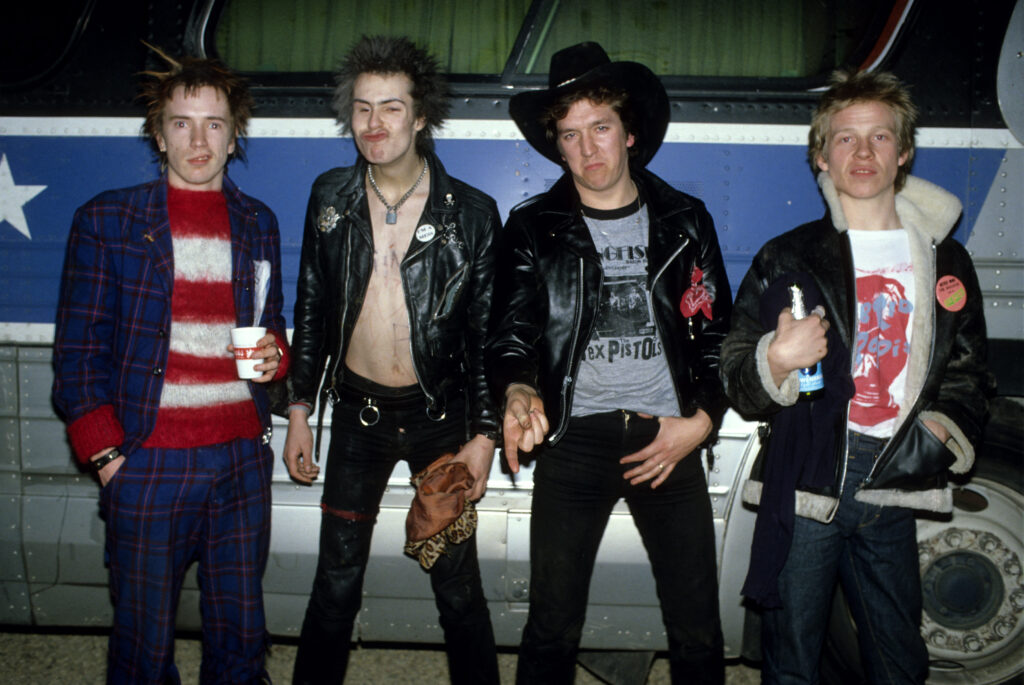
The band is soon returning to Australia in April for a tour, with Frank Carter stepping in for Johnny Rotten (now John Lydon). The decision has sparked controversy, with Rotten airing his grievances in the press. But for fans, the Pistols’ return after nearly three decades (their last Australian tour was in 1996, long before I was even born) is nothing short of monumental.
At this point, I felt compelled to tell Steve about spotting Sex Pistols stickers in the toilets. Alongside stickers of The Who, Led Zeppelin, and The Rolling Stones, it was only the true icons who were represented. I’m not suggesting that a sticker in a grimy Australian toilet marks the pinnacle of success, but it is, undeniably, something. Given this, I thought it germane to ask Jones how he felt about the label “icon” being attached to the band so frequently.
“I don’t know… great,” he chuckled. “I guess there are millions of bands, and only a few get that shot. We got that shot.”
It goes without saying, the Sex Pistols never set out to be icons. While they certainly sparked a revolution, they never expected it all. At the time, they were just a bunch of angry kids running wild in London.
“Even when we did Never Mind the Bollocks, we had no clue what we were doing,” Jones admits. “We knew we were getting popular. After a few shows, we could feel something was happening, but we had no idea where it was going.”
Their subsequent rise to fame was swift and intense. In an era dominated by bloated, overproduced rock bands, the Pistols offered something refreshingly raw. I mean, who could forget their infamous appearance on Bill Grundy’s talk show where they swore on national television?
The Sex Pistols were the gateway drug to rebellion—you just had to have the courage to take it.
“In the early days,” Jones recalls, “most people at our shows had flares, long hair, and moustaches. Then, as we played more, the crowd started dressing like us. It was a revolution, in a way. People our age finally had something to connect with.”
While the Sex Pistols didn’t invent punk, they undoubtedly brought it to the forefront. Their influence is still felt in music today, over fifty years later. You can’t walk a block without seeing their iconic logo or someone rocking a Never Mind the Bollocks T-shirt. But what exactly does it mean to be punk?
“I have no idea,” Jones responds bluntly. “To me, we’re just a rock ‘n’ roll band. Punk’s just the next evolution of music. It started with the big bands in jazz, then came the 50s rockers like Jerry Lee Lewis, Little Richard, Eddie Cochran, and Elvis. They all claimed to have invented rock ‘n’ roll. Then it was the Beatles. And then it was us. We were just the next chapter.”
Jones attributes much of the Pistols’ success to timing. “After the glam rock era, people were ready for something different. We just happened to be there at the right time,” he says. “But it wasn’t just us. There was Malcolm McLaren, Vivienne Westwood, Jamie Reid with his artwork—it was a combination of things that made it all click.”
The Sex Pistols’ story reads almost like something crafted by a screenwriter. The tale of an anti-establishment group whose rise to fame was as rapid as their fall from grace. The band who went on to define a generation of punks and create one of the most iconic albums of all time, Never Mind the Bollocks, Here’s the Sex Pistols.
Given that, it’s difficult to reconcile the fact that the band was only together for two and a half years. So, I asked Jones, why are we still talking about it now? Some fifty years later.
“It was a big moment in time,” Jones explains. “We weren’t just another band on the bandwagon. We were different. And I think the fact that we didn’t last long is part of why it still holds relevance. We broke up when we didn’t need to. We could’ve kept going, got bigger, but we didn’t. You’ve got the Sid [Vicious] thing, the Nancy [Spungen] thing, the fact we only made one album—it’s just one of those things.”
A new generation was introduced to the Sex Pistols’ music via Danny Boyle’s TV series, Pistol, where Australia’s own Toby Wallace portrayed Steve Jones. “I liked it,” Jones said of the series. “I liked 90% of it,” he then clarified. When I asked which parts he didn’t like, he remained somewhat evasive. “It was just little things that bugged me. But overall, I was happy with it.”
Jones wasn’t heavily involved in the filming due to COVID restrictions. “I was involved, but I didn’t go over there for the filming. All the COVID stuff was going on,” he noted.
I then raised the issue of the Sex Pistols’ controversial nature with Jones—how they pushed back against the puritanism of their time and raised their middle fingers to authority. One can note a striking parallel between the miserable times the Pistols emerged from and the present day. I asked if he thought the Sex Pistols would still be considered controversial in 2025.
“No, we wouldn’t,” Jones says after a brief pause. “It’s forty years later. There’s so much more stuff to look at now. We’d look pretty mild.”
“But your appearance was pretty severe back then,” I pointed out.
“Yeah, but we’re not living in a world of likes and comments, are we? Back then, it was about doing something real, not just coming up with bullshit to get likes. It’s a different world.”
I then asked Steve if he thought the Sex Pistols would get caught up in the growing wave of ‘cancel culture’. “I don’t know, probably,” he replied. “But there’s always going to be someone who stands out.”
It was at this point that Jones flipped the script on me, asking who I thought embodied a similar rebellious spirit to the Sex Pistols in the present day.
I rattled off a few names. Fontaines D.C.: “I know them a little bit. They’re pretty good.” IDLES: “They’re great.”
I then asked Jones who he’s currently into. “I like the Arctic Monkeys,” he replied. “For me, I actually like the mellower stuff.” This took me by complete surprise. Never did I think I’d hear the words ‘mellow’ come out of a Sex Pistols mouth. But there it was.
About to turn seventy this year, Jones has spent most of his life in rock. Given that the Sex Pistols, through Sid Vicious, have become synonymous with early rock and roll deaths, I felt it was appropriate to ask Steve if he ever thought he would reach this age.
“Nah but I never thought I’d be dead either. I like it. I like the experience of life. You only get one go around; you know.” For sticking around longer, Jones has now experienced many corridors of life, far more than his bandmate Sid Vicious, who tragically died at 21 from a heroin overdose. I asked Jones for his thoughts on the romanticised notion of a rock and roll death.
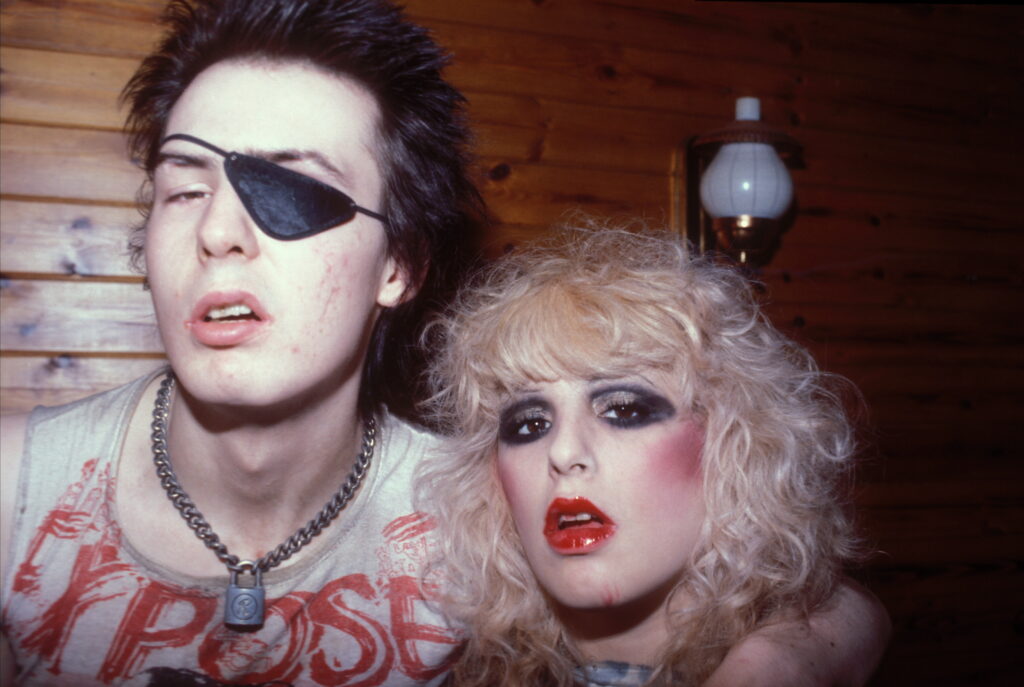
“It’s got a bit of rock and roll in it, sure. But it’s sad when anyone takes their life or ends up killed. Life’s not all good. It has its ups and downs, but it’s life.” When it comes to Vicious’ death though, Jones remarks, “I always thought, given the way he was living, Sid wouldn’t be around much longer.”
The Sex Pistols have come to symbolise angry youth for generations. Their music serves as a release for pent-up aggression. I sense a similar frustration in people my age—whether it’s in politics, social issues, or simply the escalating cost of living. A lot of us aren’t happy.
“Every generation is pissed off. If they’re not pissed off, they’ll find something to be pissed off about. And that’s good. It’s how you make stuff.”
No one understands that better than Jones himself.
The Sex Pistols will be touring Melbourne, Adelaide, Sydney, Brisbane and Perth. Tickets can be purchased here.
